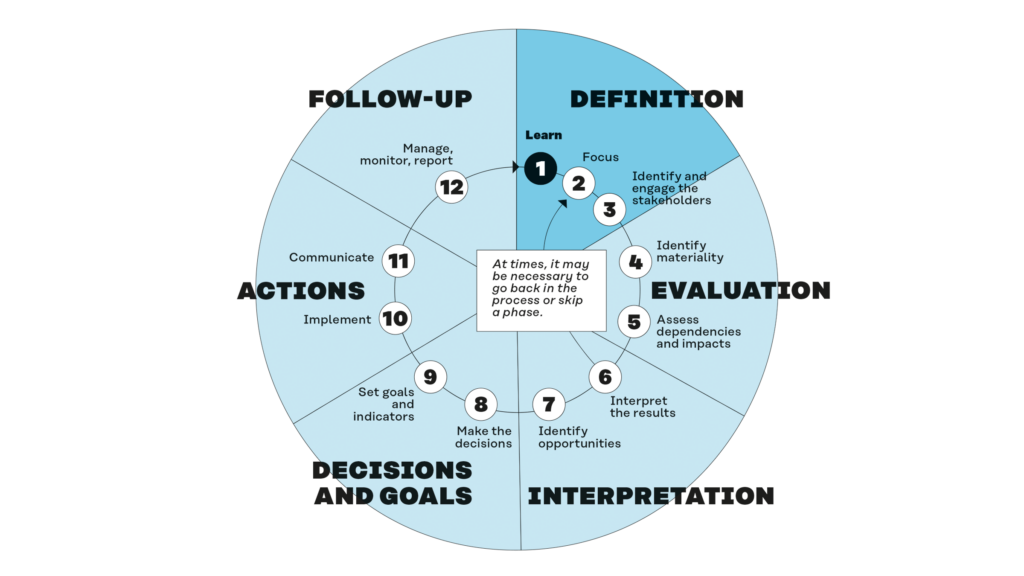Protecting biodiversity is an issue of increasing interest for companies. Customers, financiers and legislators in different countries, including the European Union, are also paying increasing attention to biodiversity loss.
The study What is the significance of nature for business? published by Sitra 26 April 2022 examines the opportunities for businesses to combat biodiversity loss, the ways in which their operations depend on nature, and impacts of business on nature.
Protecting biodiversity helps maintain vital ecosystem services that business in different sectors depends on, either directly or indirectly. Ecosystem services include the raw materials provided by nature, groundwater and the role of pollination in food production.
The World Economic Forum has estimated that more than half of global GDP is highly or moderately dependent on ecosystem services.
“Biodiversity enables businesses to thrive in the long term. That’s why protecting biodiversity is in their interests. Our study aims to respond to the growing interest in biodiversity and provide tools for companies in different situations,” explains Sitra specialist Tatu Leinonen.
The study was carried out by Gaia Consulting, which specialises in sustainability issues.
Huge business opportunities
The World Economic Forum has estimated that solutions that enhance the state of nature could generate annual business benefits of over USD 10 trillion globally, for instance through new business, resource efficiency and cost reduction.
This could also create nearly 400 million jobs globally by 2030. Examples of growth sectors include clean energy construction, energy efficiency in buildings and circular economy solutions in the automotive industry, appliances and electronics and textiles sectors.
Activities that strengthen nature can also bring companies a good reputation, resilience to sudden natural extremes – such as drought, storms and pests – and, increasingly, access to finance on better terms.
Finnish companies have already succeeded in developing significant business from solutions that reduce climate emissions. Going forward, Finland is in a good position to build successful export business through solutions that reduce the global human ecological footprint.
For example, advancing urbanisation around the world means a growing need for solutions such as wastewater and waste management, sustainable mobility infrastructure, and solutions that help adapt to climate change and extreme weather events.
Dependence on declining ecosystem services is a risk for companies
The study stresses that all companies – regardless of their sector, size or location – are in some way dependent on nature and its ecosystem services. The deterioration of ecosystem services may be reflected in a company or its subcontractor being unable to source adequate amounts of raw materials, or sharp fluctuations in the price of raw materials.
There are significant financial risks involved. For example, the UN-based Intergovernmental Science-Policy Platform on Biodiversity and Ecosystem Services (IPBES) has estimated that the monetary value of food production directly dependent on pollinating insect is between USD 235–577 billion globally.
Companies should also prepare for risks related to changes in legislation, the financing conditions, reputation and branding and social acceptability of their business.
Reducing dependence on Russia is for many companies a pressing issue due to the war of aggression against Ukraine. Sitra’s Director for Sustainability Solutions Mari Pantsar stresses that actions that strengthen biodiversity can simultaneously reduce dependence on Russia.
“It’s even more important now than before to end dependence on Russian fossil fuels and other raw materials. For example, energy saving, energy and material efficiency and circular economy solutions mean we need less virgin raw materials, fuels or fertilisers. Reducing pressure on nature and reducing dependence on Russia should be considered in parallel,” says Pantsar.
New tool for identifying risks and opportunities
Many Finnish companies are already familiar with assessing the climate impacts of their business activities. Some of them have a long track record of addressing biodiversity. But assessing nature-related impacts and dependencies is often more difficult than climate action, because the performance indicators and assessment methods are still being developed.
Many companies need more information on how to begin to understand the links between their business activities and nature, and what practical solutions are available to safeguard biodiversity. The solutions vary depending on factors such as the sector, the company’s position in the value chain and its size.
Sitra’s study developed a tool to help companies get started in their work on nature. The tool comprises 12 steps to help identify the nature impacts and dependencies of business activities and the opportunities for nature-enhancing actions. The model is designed to support businesses of all sizes, sectors and starting levels.

Join our webinar on Tuesday 26 April, from 10:00 to 11:30 to find out more about the results of the study. Registration will be open on the Lyyti system until the start of the webinar.
Read the study:
Mitä luonto merkitsee liiketoiminnalle? Riippuvuudet, vaikutukset ja mahdollisuudet (summary in English)
Extract in English: 12 nature steps for companies – strengthen your business with nature action


